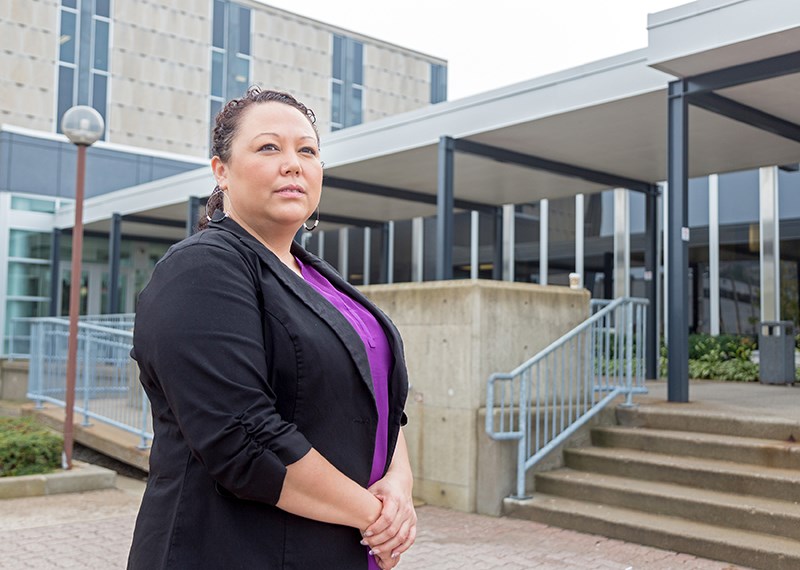Troy Shantz
Autumn Johnson says the connection she has with local First Nation residents will be a major asset in practicing law in Sarnia.
“They know me from the community so they have no problem approaching me. They’re not intimidated that I’m a lawyer,” the Sarnia woman said.
Johnson, who is Anishinaabe, was called to the bar in June and has joined the Ronald C. George Law firm at the Kettle and Stony Point First Nation.
“One of the big things that we focus on is access to justice,” she said. “It’s no secret that disadvantaged people have lower ability to access justice, so we try to be very accessible.”
Johnson is a general practice lawyer and many of the cases she has taken on fall under the umbrella of Aboriginal law, which overlaps many other disciplines. Everything from family law to land claims is fair game, which keeps things interesting, she said.
“Most days aren’t really typical,” she said with a laugh.
Johnson works primarily out of the county courthouse in Sarnia, dividing her time between court appearances and meeting clients.
She has many goals for her legal career, including using her skillset to reduce recidivism among First Nations people, she said.
“Most of us (at the office) are aboriginal and because we work in that particular area, we have a very good understanding of what that means.”
Johnson grew up on the Walpole Island First Nation and her mother is also a lawyer. But she wasn’t inspired to follow in her mom’s footsteps until she took a Grade 10 law class.
“Generally, I was raised very traditionally,” she said. “As our communities are smaller communities we have that sense of responsibility to them. I think it was just the way that I thought I could contribute to my community and my people.”
Johnson enters the legal profession at a pivotal moment in Canadian history, with the federal government signaling it will move on the calls to action arising from the Truth and Reconciliation Commission.
She believes non-native understanding of indigenous people is changing for the better, and there is a growing acknowledgment of the damage done by residential schools.
“To be optimistic about it, there has been a lot of headway,” she said.
“But there is still a long way to go. Seeing things through our perspective as much as possible is really important.”
